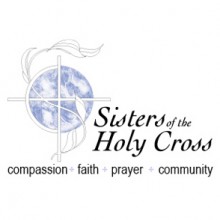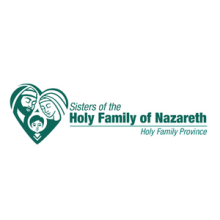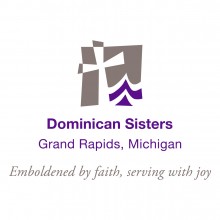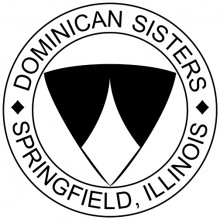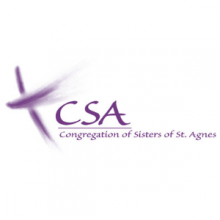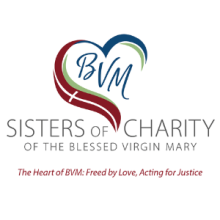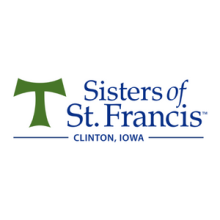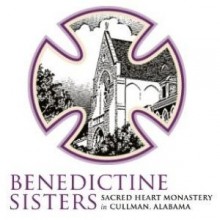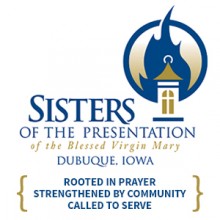I am regularly asked about stereotypes that people have about nuns and how, prior to becoming a nun myself, those stereotypes were busted for me. I’m interested to know from you what you see as nun stereotypes, either because you are a nun and have bumped up against them, and/or because you had a stereotype that was busted, and/or see various stereotypes played out in movies, TV, culture, etc. Don’t be shy!
P.S. By stereotype I am referring to a “gross often mistaken generalization”; “something conforming to a fixed or general pattern; especially : a standardized mental picture that is held in common by members of a group and that represents an oversimplified opinion, prejudiced attitude, or uncritical judgment” (Merriam-Webster).
Archived Comments
- March 28, 2007 at 10:05 am
-
Well, certainly there’s always the disciplinarian stereotype… But, for me, the stereotype (if you can call it that) is just wonderful – helpful, caring, supportive, funny. I was taught by nuns almost all my school career (minus K-2nd grade when I attended public school), even throughout college. I had nice nuns, serious nuns, fun nuns – all kinds. One of the nuns I had in High School (a disciplinarian type) turned out to be good friends with one of the disciplianrian-type nuns I had had in elementary school. The one I hold closest to my heart is Sister Agnes, she was the principal of my elementary school, and it’s one of my dreams to be just like her and to be the principal of St. Peter’s School.
I’m not really against stereotypes. I think, given and taken the right way, they’re a humorous, often eerily accurate, way for people to build a familiarity with one another. I would bet whoever came up with the Sr. Mary Stigmata character had gone to a catholic school and perhaps had someone just like her. I would further bet that this person wouldn’t have changed his/er experiences with his/er Sr. Mary Stigmata for anything.
- March 28, 2007 at 11:49 am
-
I have a tendency to think that the reasons we have stereotypes is because there are people who are that way… not everyone… but some.
I had two stereotypes of nuns were of repressed women who were forced behind walls (much more historically) and of how easy it must be to just commune with the Divine and not have any responsibilities. I know that these two visions aren’t really compatible, but that is what I had in my head.
Believe it or not, it was an episode of ‘The bionic woman’ when she went into a convent to solve a mystery. It was done (in my memory of a thousand years ago) with balance and showing that it was a loving community with women trying to do their best.
My stereotypes were blown through my work in Medieval history. Granted, there were women who were forced and unhappy but there were women who were gloriously in tune with what they thought was the Divine. There are changes from then until now… but having grown up and working with being one with the Divine, I know how hard it can be to walk the Path you think is right.
- March 28, 2007 at 1:50 pm
-
I’ve only known the warm and cuddly kind of nun, but once on a trip I had to confront that I do have a stereotype. I was changing planes in Salt Lake City and went to have something to eat. The table near me had 3 nuns at it. They started talking about other trips they had been on. One got really enthusiastic and spoke up and said, “Do you want to know the best place I ever went?”. Of course they all did. I truly expected to hear of someplace with a religious aspect, particularly some famous pilgrimage. The answer? “GRACELAND!!!!!!”
- March 28, 2007 at 9:23 pm
-
From my experience, I have seen two common stereotypes of sisters. One is the docile, saintly type who is obedient to a fault (can’t think for herself). The other stereotype is the “hell on wheels” disciplinarian who enjoys hitting kids with rulers and humiliating them in class. These are the extremes of course. I think a good number of people see sisters overall as sexually frustrated/repressed.
Even though I grew up in the Church, I never knew any nuns very well. Although I was familiar with the stereotypes I mention above, I couldn’t really relate to them from personal experience. I did assume, however, that there was a good element of truth to them Personally, I just remember thinking it was not “cool” at all to be a nun. Becoming a nun was something as “out there” as joining the circus. Maybe that was because so many people seemed to make fun of sisters – not just school kids but also normally mature, discriminating adults.
How were my misconceptions shattered? By getting to know lots of sisters personally and reading accounts of their lives and activities in magazines, newspapers, etc.
If I had to pick the most common, positive traits I have found in sisters I know, I’d say they are usually deep (not superficial), committed, intelligent, gentle and well educated. I find most try to understand rather than judge. Most also appear to be genuine and humble. I’m sure there are a few who come close to the stereotypes, but that’s probably more the exception than the rule.
I haven’t seen a large number of sisters portrayed in the media. But out of the serious ones I’ve seen, most aren’t too bad. My favorite is the Rev. Mother in the “Sound of Music”, especially when she sings “Climb Every Mountain.” She is depicted as an intelligent woman of compassion and wisdom.
- March 29, 2007 at 8:10 am
-
I went to a Catholic school, but there were only ever three nuns. One was the first grade teacher, and I came in second grade so I was never around her, one was the pricipal, so the only time I saw her report card time and one was my fourth grade teacher. The sad thing is they really didn’t seem like nuns. They just looked and acted like everyone else ( to my elementary school mind) and there really seemed to us that there was no point in becoming a nun because they seemed to be just like a everyone else. That took a while for me to get over. I guess the way I did was meet people like Sr. Jospeh Andrew and Sr. Mary Agnes, and I realized that they were gentle, huumble, intelligent people who lived a radical life of sacrifice, that is certianly the type of nun I hope ( God willing) to be one day. God Bless and I love the blog.
- March 29, 2007 at 8:57 am
-
Thanks for all the good reflections on this topic. It is odd how we come face to face with those stereotypes … via the bionic woman or Graceland! I think one of my stereotypes was that nuns were unapproachable, mysterious characters. I may not have articulated it as such when I was younger, but it showed in how I would keep my distance in turn, even with nuns who were highly approachable real people. I’m glad for the patience of the nuns I knew back then and their openness to let me get to know them.
- March 29, 2007 at 9:07 am
-
Coming from a Southern town, where the Catholic population is definitely in the minority and Southern Baptists and Methodists are like Starbucks, a church on every corner…my first remembrance of a nun was (and I’m sorry to say this) Sally Field’s “Flying Nun”. I loved that show. The nuns portrayed fascinated me. I think it was the sense of family they exuded. I grew up in a home torn apart by divorce, with a very bitter mother and a new step-dad I was forced to refer to as ‘daddy’. The safety and comfort of family was something I deeply craved.
Today, what I think of when I see a nun is still that sense of fascination with the ‘family’. Which is odd, since part of what I think is probably stereotypical is that, on entering the convent, nuns give up ties with their biological families. Hmmmm…maybe that’s why I find nuns interesting. Maybe I really wanted to give up my own biological family. Something to ponder and pray about!
Something else I see as a stereotype which appeals to me is the simplicity of life. Not owning nor being tied down with many material possessions.
I’ve just stumbled on to this blog, and obviously need to do some research to see if my stereotypes have any truth.
- March 29, 2007 at 10:17 am
-
I never really thought of nuns as unapproachable or mysterious. I could understand your opinion though in retrospect. But I did view sisters as the “other”. They were “different”, set apart, not at all like the rest of us. Although this may be true to some extent (I mentioned some of those fine qualities I find common to most sisters I have met), I don’t find most sisters to be that “different” at all. My spiritual director, a sister, is probably more normal than I. I can have my head in the clouds at times and she definitely has the gift of common sense.
- March 29, 2007 at 10:40 am
-
This has been an interesting topic! I have always been around nuns in elementary and high school who were happy and friendly. I always wondered what they did behind those convent walls. Now being a nun I do not like the way the media, greeting cards or calendars depict nuns. They have us foolish looking, silly or very strict. I would rather they see us as educated women who know the issues of today and capable in what we do.
- March 29, 2007 at 1:34 pm
-
Well, seeing you asked…
* I actually have an aversion to the word “nun” and would rather identify myself as a monk – and if anyone objects that that is male (it is rather a scandal that the English language has no feminine version of “monk”) then I’d rather reclaim the Greek/Latin “monacha”. But I recognise that thats partly because of my context – both a linguistic context in which the local equivalent of “nun” is seen as rather perjorative, and a monastic context in which I am concerned with monastic identity which has nothing to do with gender. But I suppose I might feel differently if I was in a specifically feminine institute…
* The idea that women religious are a sort of second-rate priest … the way people speak about “priests and nuns” (where do religious brothers fit in?) as if they were almost the same thing except that the one is on a higher rung than the other … and the assumption that we would all be ordained if we could be. (I’m not arguing that women shouldn’t be ordained but rather that religious – whether male or female – should be wary of ordination).
* Linked to this is the assumption that if clerical celibacy were to be made optional then we too “would be allowed to marry” – which completely fails to understand the fundamental difference between clerical celibacy as a discipline which can (and perhaps should) be changed and religious celibacy which is funamental to our calling.
* Lastly, with apologies to any for whom this is a beloved image … the idea that “nuns” are brides of Christ. I find this a pretty awful image, largely because it turns God into an anthropomorphized male, and a polygamist at that! Yes, I know that there are people (including people like Sandra Schneiders) who want to reclaim it in a more nuanced way, but I am not convinced! Actually the theological issues are more involved than this but they boil down to the question of whether women are really able to image God in Christ in their own right or whether they need to be joined to a man. Commenting on the development of the monastic profession liturgy in the Middle Ages, Penelope Johnson writes: “There were actually two services, one for nuns that drew heavily on the imagery of marriage and one for monks that centered on the idea of renovatio of the whole person. The differences by gender emphasize the hierarchy’s view of women as dependent and men as autonomous, of nuns as living spouses of Christ and monks as “putting on the new Christ” – thereby identifying themselves directly with Christ.” (Equal in monastic profession, p. 63)
Now thats more than I’d been planning to say and it may not have been exaclty what you were looking for, so I’d better stop!
- March 29, 2007 at 6:43 pm
-
My views of nuns and sisters have really been skewed over the years. I went to catholic grade school, and my principal was a nun. Sad though I am to admit it, I, like other I’m sure, saw nuns as old, strict authorities who seemed bent on making school as difficult as possible (it was quite the opposite of course!)
Now I’m in high school, and I have a nun as my geometry teacher. By now, most of my stereotypes are being broken, though my geometry teacher seemed (and still seems at times) to have the same mission as my grade school principal (or it could be because I just hate geometry). I’m sure that my teacher is actually a good person, though human, like all sisters.
Sometimes I would see women walking around with the emblem of the sisters of charity pinned on their sweater and I would think “that lady can’t possibly be a nun! She’s not nun-looking enough!” My stereotypical views actually held out until earlier this year when I started doing research about religious life, and came across Sister J’s site as well as many others that helped my change my views.
- March 29, 2007 at 7:13 pm
-
These comments have been eye-opening to read! I’ve enjoyed them.
Stereotype: All nuns are old.
I don’t recall meeting a religious sister face to face until I was a freshman in high school when we traveled from the Bible Belt to St. Louis to see JP2. Prior to that, I remember hearing that here were such things, even that there was one in my home parish, but in all my years there I couldn’t tell you who she was. Thankfully, this stereotype continues to be shattered (in a great way) as I study theology along side men and women religious, and laity of all ages!
Also, Macrina, as a woman discerning religious life, I’ve done a lot of personal study (at the suggestion of my spiritual director) surrounding the history of the “bride of Christ” image. Have you read Sandra Schneiders’ “Selling All: Commitment, Consecrated Celibacy, and Community in Catholic Religious Life”? It’s been most helpful to me, and the only book I’ve come across that doesn’t outright reject the image, but does clearly critique it.
- March 30, 2007 at 6:10 am
-
Why would religous wear their wedding ring if they are not the spouse of Christ?
- March 30, 2007 at 4:22 pm
-
Macrina: I’m assuming you are a Benedictine, correct? I am an oblate of St. Benedict.
-It does seem that people generally regard women religious as somehow less than priests. And it probably is only because they are women. If you want to assess it by earthly standards (as many do even if they don’t realize it), women religious have held just as important and challenging positions as men, i.e. university presidents, hospital CEOs, etc. Although I personally believe in the ordination of women, I would never have any desire to be a priest. Being a sister (or monk!) is a much more appealing option.
-Even though I’m somewhat of a feminist, I personally find the imagery of the bride of Christ very beautiful (now I haven’t studied it or lived it for years). As I look at it, it conjures up feelings of profound intimacy with Christ, almost like the type in a marital relationship. Ironically, I find I sometimes feel like a bride of Christ myself. But then I’d have two husbands. That’s a little weird but with God, anything is possible.

- March 31, 2007 at 8:19 am
-
Sister Julie, I was so thrilled to hear you on NPR this morning and to find this blog! I’ll be a frequent reader.
About stereotypes: there are so many offensive ones out there. I got to know a group of cloistered nuns here in Cleveland–Poor Clares– and found a community of engagingly different personalities. When other people heard about my involvement with them, they pummeled me with questions, many of which had to do with the “bitter old women who couldn’t get a man” stereotype. One of the things I found particularly annoying was that there was such a difference of perspective regarding men who choose a contemplative, celibate life and women who choose this path.
- March 31, 2007 at 12:18 pm
-
I am not catholic but my very good friend as a child, name Mary (with No middle name, in case she decided to be a nun)was from a large devote catholic family and went to catholic school. I always loved the mystery of her life and her associations with nuns. As an adolesent I loved the romatic stereotypes of nuns (Mary tyler moore as a nun in the inner city and falls in love with the doctor,played by Elvis). Romance novels about nuns that fall in love and leave their order. And of course, Maria von Trapp, my favorite ex-nun. I often thought how lucky my friend Mary was…she could become a nun and would be certain to meet the love of her life!! I still love a good fun “nun” fiction.
- March 31, 2007 at 4:33 pm
-
I also floated in after hearing the NPR interview. really excited for your blog. I grew up in a not-very-religious Hindu household in America, but my parents went to the best schools in India–which were the Catholic Schools. So I have this mix of nuns as both disciplinarians who would whap your hand with a ruler (as corporal punishment was allowed) or kind, gentle women who would guide. The one strange one is I can imagine young nuns and old nuns, but I have a hard time imaginging a middle-aged nun! Sort of ridiculous, but that I attribute to my exposure via tv/movies. I definitely imagined nuns as being constantly holy and everlastingly good and people you shouldn’t say certain things around…I am glad your blog and interview can change that for me!
- March 31, 2007 at 9:40 pm
-
I am not catholic, but my stereotype of a catholic nun was of a person who had suppressed all of their emotions for the kingdom. This was blown away by my CPE supervisor Sister Mary. She modeled for me a full range of emotions, and she encouraged me to really feel what was going on in me during the present moment. She was present for me in a time of deep spiritual need. I will always be grateful to her.
- April 1, 2007 at 9:16 am
-
Thanks for continuing the conversation. It is true that stereotypes come out of actual experiences. The only problem is that sometimes those experiences are seen as the ONLY way that a person can be a nun or that if one nun was like that then ALL nuns must be like that. Unfortunately images like the Sister in the Blues Brothers movie, while perhaps harmless in and of itself, has stuck in people’s minds as the way nuns probably are. That’s what I find problematic.
And Lily, before I forget … very good point about the rings. You are right, the rings we sisters wear came from the idea that nuns are spouses of Christ and like all married people, we wear a sign of our commitment. Sisters are pretty mixed in terms of how we interpret and understand that image. Some embrace it as is, some reject it completely, some find it useful but have other images as well to understand their relationship as a religious with God, some are working to find ways to reclaim the image. Such differences are acceptable and good. Being a “spouse of Christ” is one way to talk about the relationship a person has to God in the sense that we long to become one with God. Marriage is a symbol of that reality of two becoming one.
- April 1, 2007 at 4:29 pm
-
Re: Not saying certain things in front of nuns … One time I was looking at some kind of interview with the well known comedian Bob Newhart. As some of you may know, his own biological sister is a nun. He loves it when he throws parties, invites her over and overhears someone say something really racy to her. Why? He then mischevously responds, “Oh, I see you have met my sister the nun.”
According to Bob, you wouldn’t believe the hilarious reactions he gets – not because his sister is a nun – but because the normally confident, mature (probably very well heeled) people casually chatting with her are so embarrassed they practically squirm. From what I gathered, Bob’s sister the sister finds this pretty funny too. I guess the whole family inherited a sense of humor!
- April 1, 2007 at 9:48 pm
-
I don’t get the habit stereotype I’m hearing from a lot of younger Catholics. Maybe it’s because I’m way past the age of a twentysomething, but the bias I’m hearing is that if a woman religious doesn’t wear a habit, she’s not a “real nun.” While I’m just an oblate (currently unaffiliated thanks to a couple cross-country moves), I do remember the line in the Rule of St. Benedict that the clothes religious wear are supposed to be clean, appropriate to the area, and would not distinguish them from the poor. I don’t see any mention of “must wear a habit designed in the last millennium.” And on the ring thing, I know a couple men religious who wear them, too.
- April 2, 2007 at 12:15 am
-
Jen, I think the habit stereotype could be phrased neutrally as “If a nun is wearing a habit, she’s likely to value at least some Catholic traditions.”
But some people have the idea that nuns who don’t wear habits and also talk about women’s ordination or switch out masculine pronouns for God or teach things contrary to what the Church teaches wouldn’t do any of those things if only they had been forbidden to not wear habits. And even people who realize that that’s silly might still subconsciously associate “nun without habit” with “nun who doesn’t follow Church teachings”. Like any stereotype, it’s easier than having to think about people as individuals.
I would suspect that most people in the first group (“habits are magical anti-heresy devices”) also think negative thoughts about priests who don’t wear cassocks or at least clerics.
- April 2, 2007 at 12:29 pm
-
I went to Catholic school for first and second grade only. Most of the teachers and the principal were nuns. My stereo type was stern, “scary” looking, old and not warm. In fact, until recently (the last 3 years) the priests I encountered were the same.
With the help of your web site and a wonderful church (Our Mother of Sorrows in Greece, NY) my views are changing. Our priests, nun and deacon are amazing.
I actually have been listening to EWTN and am learning about women of grace. How to make the most of our feminity in the catholic church and am seeing a side of woman in the catholic church as never before.
- April 2, 2007 at 1:26 pm
-
Since I didn’t grow up in the Catholic Church, my early impressions of nuns came from The Sound of Music. Of course, I was about six when I fell in love with The Sound of Music so I thought nuns were nice ladies who went around singing and sabotaging Nazi cars.
My first real meeting with a nun was with Sister Mary Virginia Orna, OSU, who is a professor of Chemistry at New Rochelle. She came to my college and gave a lecture on archaeological chemistry. I’m a chemist who also happens to love biblical archeology so, for me, it was hands-down the best lecture I heard in all four years of college.
It really touched me at a spiritual level too since being a person of faith and a scientist at the same time can be challenging. I was really inspired to hear a lecture from a scientist who had not given up her faith.
- April 15, 2007 at 3:12 pm
-
Wow. What a wonderful conversation going on here. I grew up with zero exposure to nuns or sisters. So, when I finally listened to the call of God to become one, I was freaked out. By then the only images I had of nuns were based on the media and this didn’t give me any sense of confidence in what or where I was headed. I assumed the sisters would be somehow “out of this world” and when I arrived at my first convent and began speaking with a sister there about 1. the X-Files and 2. her recent vacation with her mother, any subconscious stereotypes were burst. Later, when we knew each other better the conversations about spirituality, witness and God were even more fruitful. It took the practical to get me to the sublime.
Julie, thanks so much for this blog and your ministry here.
- April 16, 2007 at 11:22 am
-
Thank you for this website/blogsite. A surprising idea hit me about nuns when I was at an awards dinner for nurses. The main speaker was very good & he was talking about getting people interested in nursing. He was an ex-marine & a very nice male nurse who truly loved his job. He asked a very provocative question during his talk. He said that many children do not know what they want to be when they grow up… Then, he asked, “At what age do children decide that they do NOT want to be some profession when they grow up?!” (My husband jokingly answered 30!)…Anyway, he said that at around at 3 or 4 years of age a child has already decided what he/she does NOT want to be when he/she grows up. The speaker went on to tell the nurses that it is very important how they talk about nursing to their children & to others in general. If they always give a negative report, no one will want to be a nurse. They should talk about the reasons they became nurses & why they like nursing, too. His talk made me think of all of the negative talk about nuns & sisters which must turn off children from ever wanting to become nuns or sisters, even at an early age.
Once, I was really upset when some neighbors of mine decided that it was just fine to talk negatively about nuns & sisters to me. Why not…everyone talks negatively about nuns & sisters all of the time…even Catholics frequently do this! I told them that I was fortunate to have some very caring, very loving sisters teaching me in school. They were sweet, very intelligent, & even strict, because they wanted us to get the best education & they did not put up with nonsense. I was blessed to have been taught the truths of our Catholic faith by these sisters. Now, I am very careful how I speak about sisters & nuns in general because of what the speaker said at the Awards Dinner. I don’t want to turn anyone off from becoming a sister or nun. In fact, I hope & pray that there are many vocations to the priesthood & religious life.
- April 16, 2007 at 6:24 pm
-
It is also encouraging to think about the orders that are getting vocations. Mother Angelica’s PCPAs are out of room at Our Lady of the Angels Monestary and are branching out.
- April 16, 2007 at 9:30 pm
-
I certainly cannot speak for the individual sisters/nuns from Our Lady of the Angels Monastery in Alabama. But I’d hardly consider Mother Angelica herself a model of orthodoxy and obedience. She is an ultraconservative traditionalist, with her own distinct view of the faith, who has disobeyed Church authorities on numerous occasions. None of this is a secret. Much of it is written in her biography. Also, according to many in the USCCB, Mother Angelica has often manipulated Church authorities using her power in the media as leverage. Perhaps one of the main reasons Mother Angelica’s Poor Clare’s have more vocations than others is because of their constant exposure to the public.
- April 16, 2007 at 9:35 pm
-
I never knew any women Religious as a child, as I was brought up protestant. However my Dad went to a parochial school pre Vatican 2 staffed by nuns in “full battle gear”. The stories he told were ghastly. So I suppose this influenced my thinking. We err if we ascribe 50 year old stereotypes to Religious today…. Those who remain faithful to the spirit of their founders and their Lord will flourish, as they have for 1500 odd years (in the case of the Benedictines).
Religious are people, individuals like the rest of the world, and one cannot paint with too wide a brush without slopping tar on those who merit our praise and our prayers for their love and service. I wear a habit to Church, and from Church, I even wore it to the restaurant last Sun as I was invited out with the priest and the bishop and their families, but I do not wear it for work or at other times (it is too impractical – floor length white hooded alb, blue cincture, and full length blue scapular that blows wildly in the breeze – you try and work in THAT in the mud!) But I would hope that just because I do not wear my habit in public at all times, that some would not ascribe liberal leanings to me. If my Order had a decent working habit I’d wear it, as it is they don’t at present.
The breaking of stereotypes is difficult, and can only happen one relationship at a time. I would encourage anyone to make a Retreat at a monastery or convent if they truly are curious as to what monks and nuns DO all day. I hope to make a Retreat this autumn, and our Chapter meeting is always a refreshing time when us scattered Oblates can reconnect and fellowship.
One of the most notable Chapters in St. Benedict’s Rule might be the last, LXXIII “Of This, that Not the Whole Observance of Righteousness Is Laid Down in this Rule”…it is a beginning. Grudging performance and adherence to Rules and regulations will not save us or make us particularly holy apart from a genuine vocation and a daily infusion of Divine sanctifying Grace into a humble heart. That principle applies to any Christian really… It’s not just nuns who get stereotyped, it is all Christians who get poked fun at in various ways. May we all strive to break down these mental barriers in ourselves.
- April 17, 2007 at 9:23 am
-
Donna, Could you please give me some examples and resourses of Mothers unfaithfuless? Since I have friends at OLAM, I would like to look a little deeper into that.
- April 17, 2007 at 5:36 pm
-
Brother Dominic: Good post. Thank you.
Lily: One of the best ways for you to see what I’m talking about is actually simply to read Mother Angelica’s biography. Some examples of a less than faithful representation of the faith would be EWTN’s subtle support of the war in Iraq (the Pope is clearly against it) and how certain topics are misrepresented, such as “centering prayer” being an Eastern form of prayer unacceptable in Roman Catholicism. Contemplative (i.e., centering) prayer began with the Desert Fathers of early Christianity.
- April 18, 2007 at 7:10 am
-
Thank you very much, I am accually going out today, so I’ll get the book then. Thank you for your help.
